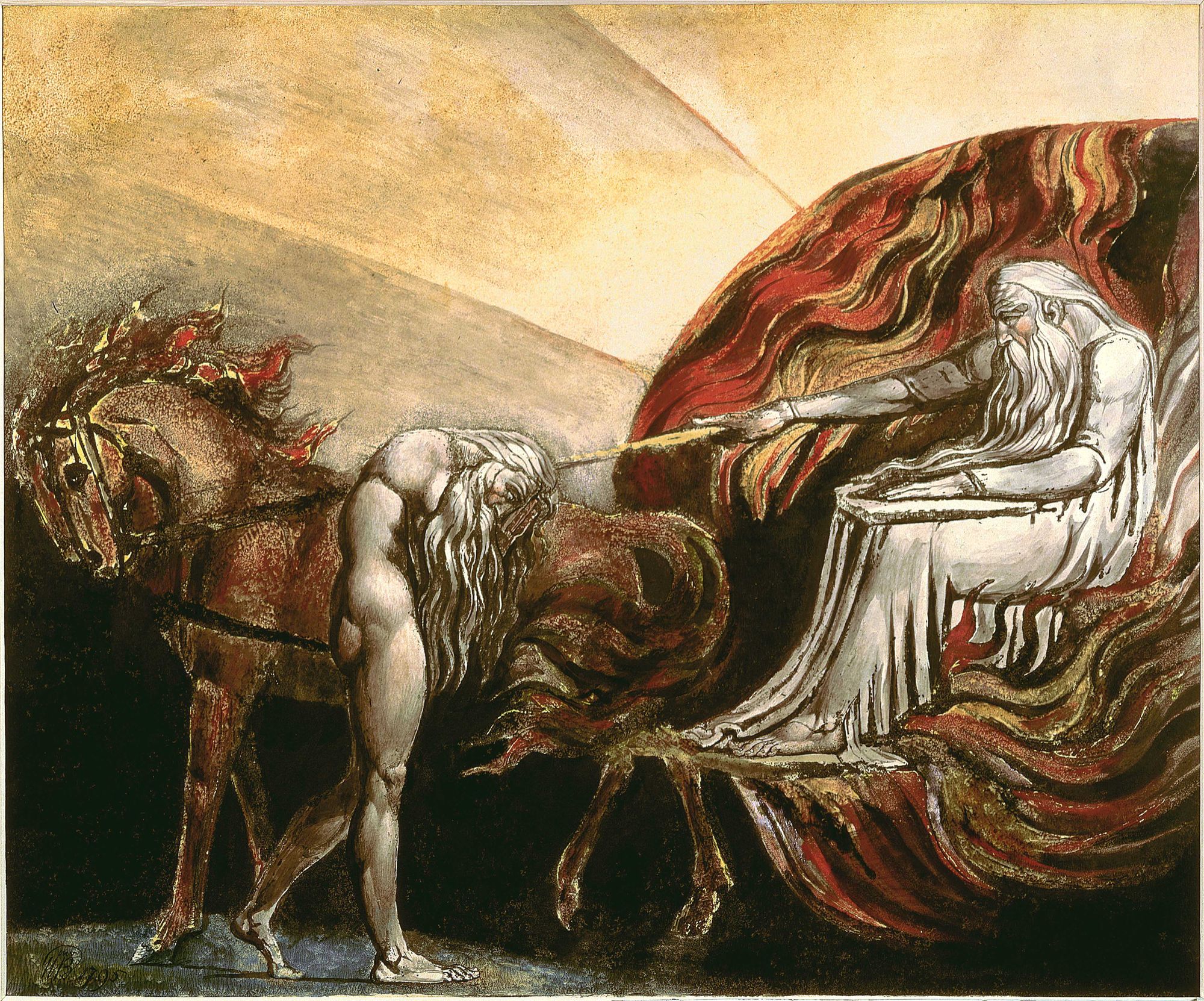Pull the Levers

God Judging Adam by William Blake, c. 1795
The phrase necessary evil gets thrown around a lot, usually referring to subjects that must be either. When in doubt, we could certainly go without. And dualism tells us that the bad contains the good, while the good contains the bad.
Instead, a necessary evil should be reframed as a coordination cost, where we are aware of the tradeoffs we're making in attempt to avoid a certain outcome. Typically, those outcomes are things like war, poverty, starvation...death, in other words.
To avoid them, humans have stumbled upon unique ways of coordination: churches and states and corporations that steer groups of people into more advantageous situations. The three bodies are the pillars of our world, and they often wage silent wars on the others in pursuit of supremacy.
There are two main tools they use: bureacracy and propaganda.
Bureaucracy helps a system maintain itself, ensuring that change happens at just the right pace. Within it, there is a hieracrchy, both implicit and explicit, that is representative of the competency of the system. Sometimes competency is raw ability to perform a task, but often the most competent person is the one who most effectively wields influence. Few understand that persuasion is the most important skill when it comes to coordination, and a lot of suffering follows.
Propaganda is the system imposing it's narrative on the surrounding ecosystem, including within the system itself. There is an inner game, where the system must tell stories to maintain the bureaucracy. Then there is an outer game, where the system tells stories in attempt to shape the ecosystem to it's advantage. Again, the ability to persuade is the chief skill. But people know this, intuitively, and it gives them the ick, so a lot of suffering follows.
So, in order to avoid suffering (the death kind, not the moralistic agonizing kind) humans work diligently on their superstructures and the stories they tell about them. Quite often, our pursuits bring us even more suffering than if we'd just accepted our fate. We could've remained in the garden, but we didn't. This is perhaps the greatest evidence for free will.
More people than ever understand human machinery. The breakdown isn't clear to me, but within this group there are some who are disgusted by the machine's capacity to inflict suffering. And then there are others who see it for what it is, without moral struggle, but are prevented from action by fear: either because they fear failure or because they fear becoming someone of disgust.
I think there's a two step method out of that fear:
- You must believe in your vision for the future
- You must be willing to use the machine to realize that vision.
That means you have to be a romantic. It's not enough to complain about big things. Nitpicking is a necessity, and along with it you must dream up something better. And you've got to learn to wield bureacracy and propaganda for your own benefit. That doesn't mean you must create your own, but at a minimum you must leverage it to do your bidding.
Failing to do so is nihilism. But if you can pull yourself together and power through the trough of despair, you might just have what it takes to make your little slice of earth heaven.
At least, that's all I can hope for myself.